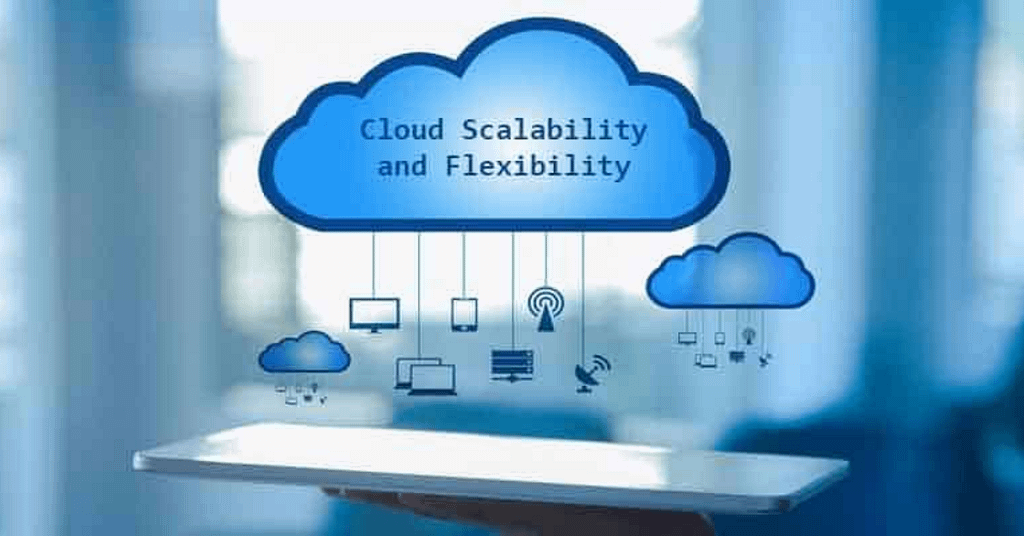In today’s fast-paced digital landscape, UK businesses face a critical decision: should they adopt cloud computing or stick with traditional on-premise solutions? Both options have their pros and cons, and the right choice depends on your business’s unique needs, budget, and goals. This article explores the key differences between cloud computing and on-premise solutions, helping UK businesses make an informed decision.
What Are Cloud Computing and On-Premise Solutions?

Cloud Computing
Cloud computing refers to the delivery of computing services—such as storage, servers, databases, networking, and software—over the internet. Instead of owning and maintaining physical infrastructure, businesses can access these resources on-demand from cloud service providers like Amazon Web Services (AWS), Microsoft Azure, or Google Cloud Platform.
On-Premise Solutions
On-premise solutions involve hosting and managing all IT infrastructure within your business’s physical location. This includes servers, storage, and software installed on-site. Businesses are responsible for maintaining, upgrading, and securing their hardware and software.
Key Differences Between Cloud Computing and On-Premise Solutions
To determine which option is best for your UK business, let’s compare cloud computing and on-premise solutions across several key factors:
1. Cost
Cloud Computing
- Lower upfront costs: Cloud computing operates on a pay-as-you-go model, meaning you only pay for the resources you use.
- Scalability: Easily scale up or down based on demand, avoiding the need for costly hardware upgrades.
- Operational expenses (OpEx): Cloud services are typically categorized as operating expenses, which can be beneficial for tax purposes.
On-Premise Solutions
- Higher upfront costs: Requires significant investment in hardware, software, and infrastructure.
- Maintenance costs: Ongoing expenses for upgrades, repairs, and IT staff.
- Capital expenses (CapEx): On-premise solutions are considered capital expenditures, which may not be ideal for businesses with limited budgets.
Winner: Cloud computing is more cost-effective for most UK businesses, especially small and medium-sized enterprises (SMEs).
2. Scalability and Flexibility

Cloud Computing
- Elastic scalability: Quickly adjust resources to meet changing business needs.
- Global accessibility: Access data and applications from anywhere with an internet connection.
- Faster deployment: Launch new applications or services in minutes.
On-Premise Solutions
- Limited scalability: Adding capacity requires purchasing and installing new hardware.
- Geographic constraints: Access is limited to on-site locations unless additional remote access solutions are implemented.
- Slower deployment: Setting up new infrastructure can take weeks or months.
Winner: Cloud computing offers unmatched scalability and flexibility, making it ideal for growing businesses.
3. Security and Compliance
Cloud Computing
- Advanced security features: Cloud providers invest heavily in security, including encryption, firewalls, and threat detection.
- Compliance support: Many cloud providers offer tools to help businesses comply with UK regulations like GDPR.
- Shared responsibility model: While providers secure the infrastructure, businesses are responsible for securing their data and applications.
On-Premise Solutions
- Full control: Businesses have complete control over their security measures.
- Customizable compliance: Easier to tailor security protocols to meet specific regulatory requirements.
- Higher responsibility: Businesses must handle all aspects of security, which can be resource-intensive.
Winner: On-premise solutions offer greater control, but cloud computing provides robust security and compliance support for most businesses.
4. Performance and Reliability
Cloud Computing
- High uptime: Leading cloud providers offer 99.9% uptime guarantees.
- Global data centers: Ensures low latency and fast access for users worldwide.
- Disaster recovery: Built-in backup and recovery solutions protect against data loss.
On-Premise Solutions
- Local performance: On-premise systems can offer faster performance for local users.
- Dependence on internal IT: Reliability depends on the quality of your infrastructure and IT team.
- Disaster recovery challenges: Requires additional investment in backup solutions.
Winner: Cloud computing provides superior reliability and disaster recovery capabilities.
5. Maintenance and Support

Cloud Computing
- Managed by providers: Cloud providers handle maintenance, updates, and troubleshooting.
- 24/7 support: Access to round-the-clock technical support.
- Reduced IT workload: Frees up internal IT teams to focus on strategic initiatives.
On-Premise Solutions
- Internal responsibility: Businesses must manage all maintenance and updates.
- Higher IT workload: Requires a dedicated IT team to handle day-to-day operations.
- Potential downtime: Maintenance and upgrades can disrupt business operations.
Winner: Cloud computing reduces the burden of maintenance and support, making it a more convenient option.
Which is Best for UK Businesses?
The choice between cloud computing and on-premise solutions depends on your business’s specific needs:
Choose Cloud Computing If:
- You have a limited budget and want to avoid high upfront costs.
- You need scalability and flexibility to support growth.
- You want to reduce the burden of IT maintenance and support.
- Your business operates remotely or has a distributed workforce.
Choose On-Premise Solutions If:
- You require full control over your data and infrastructure.
- You have the budget and resources to invest in and maintain hardware.
- Your business operates in a highly regulated industry with strict compliance requirements.
- You need ultra-low latency for local users.
Hybrid Solutions: The Best of Both Worlds
For many UK businesses, a hybrid approach—combining cloud computing and on-premise solutions—offers the perfect balance. For example, you could store sensitive data on-premise while using the cloud for less critical applications. This approach provides flexibility, scalability, and enhanced security.
Conclusion: Make the Right Choice for Your Business
Both cloud computing and on-premise solutions have their strengths and weaknesses. For most UK businesses, especially SMEs, cloud computing offers a cost-effective, scalable, and secure solution. However, businesses with specific regulatory or performance requirements may benefit from on-premise solutions or a hybrid approach.
Take the next step: Evaluate your business’s needs, budget, and goals to determine which option is best for you. If you’re unsure, consult with an IT expert to explore your options and make an informed decision.
Alt Text for Images:
- “Cloud computing offers scalability and flexibility for UK businesses.”
- “On-premise solutions provide full control over data and infrastructure.”
- “Hybrid solutions combine the benefits of cloud
- How to Choose the Right Cloud Provider for Your Business
- Top IT Security Tips for UK Businesses
- UK Government Guide to Cloud Computing
- National Cyber Security Centre (NCSC) Cloud Security Principles
By understanding the differences between cloud computing and on-premise solutions, UK businesses can make a strategic decision that supports their growth and success.

